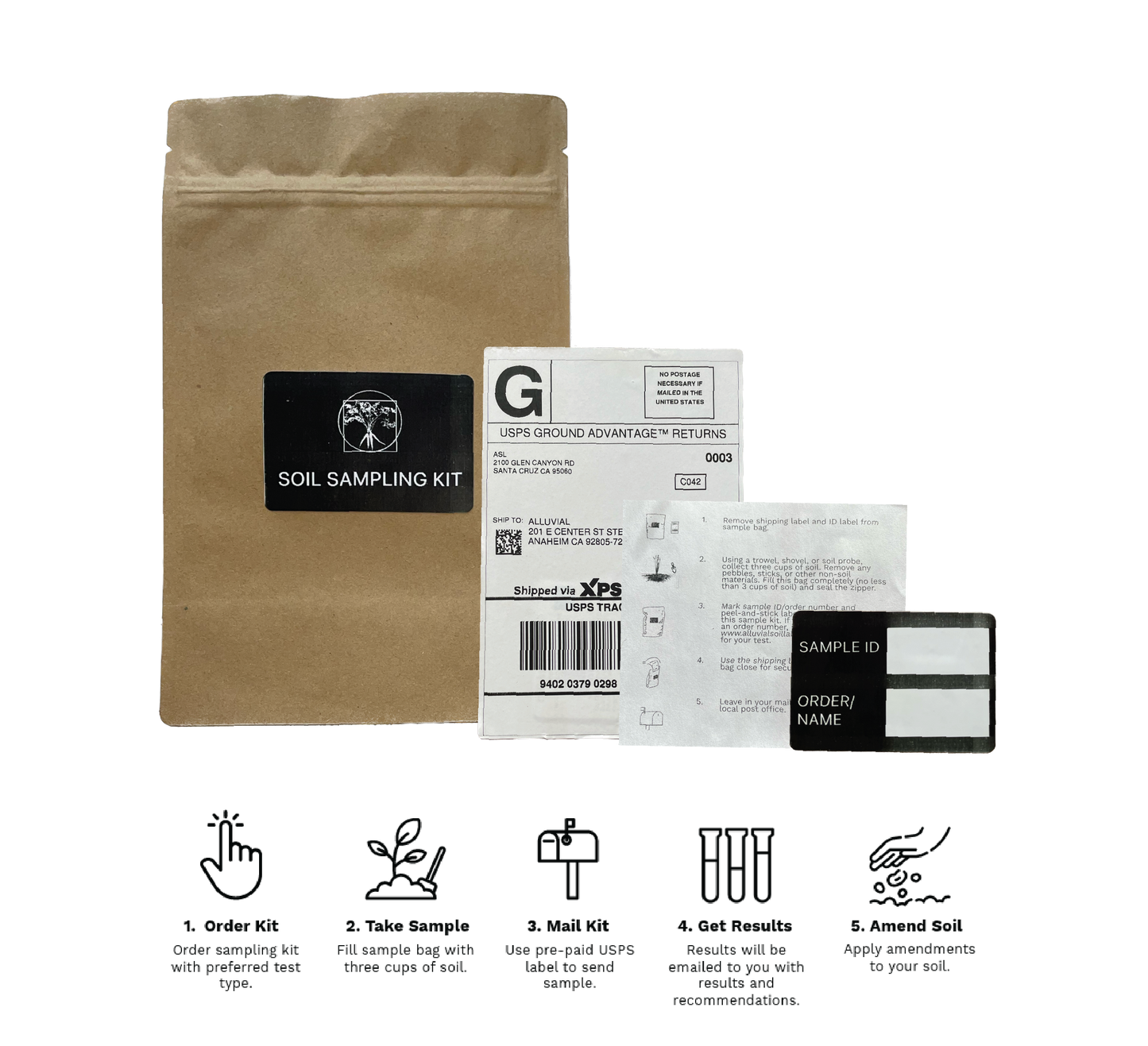Plant Tissue
Plant Tissue
The plant tissue analysis is a vital diagnostic tool used to assess the nutritional status and overall health of plants. This comprehensive analysis evaluates the presence and concentration of essential nutrients crucial for optimal plant growth and development.
Couldn't load pickup availability
- Fast Turnaround Time
- Accurate Results
- Secure PCI/SSL Payment
- 30-Day Refunds
- Expert Recommendations
- Sustainable Packaging
Report includes:
- Graphs, data analysis, and personalized recommendations with organic or conventional amendments.
- A 15-minute phone consultation with one of our soil scientists.
Key parameters tested in plant tissue analysis include:
- Nitrogen: Essential for protein synthesis, leaf development, and overall plant growth.
- Sulfur: Important for protein formation, enzyme activity, and chlorophyll production.
- Phosphorus: Crucial for energy transfer, root development, and flowering.
- Potassium: Regulates water uptake, improves disease resistance, and enhances fruit quality.
- Magnesium: Component of chlorophyll, essential for photosynthesis and enzyme activation.
- Calcium: Enhances cell wall structure, aids in nutrient transport, and mitigates physiological disorders.
- Sodium: Indicates soil salinity issues, affecting water balance and nutrient uptake.
- Iron: Essential for chlorophyll synthesis, electron transfer, and enzyme functions.
- Manganese: Facilitates photosynthesis, enzyme activation, and nitrogen metabolism.
- Copper: Necessary for enzyme activity, photosynthesis, and reproductive growth.
- Boron: Critical for cell wall formation, pollen germination, and sugar transport.
- Zinc: Involved in enzyme activation, hormone regulation, and carbohydrate metabolism.
By analyzing these elements, plant tissue analysis provides valuable insights into nutrient deficiencies, imbalances, or excesses, guiding growers and agronomists in optimizing fertilizer regimes, soil management practices, and overall crop health. This data-driven approach aids in enhancing crop yield, quality, and sustainability.
Sampling instructions
Sampling instructions
Materials Needed
i. Clean plastic bucket
ii. Shovel or soil probe
iii. Plastic bag
iv. Labeling materials (marker, tape, or label)
v. Gloves & mask (for contaminated soils)
Sampling Process
Step 1: Define Sampling Area
i. Identify the specific area for testing.
ii. Collect one composite sample per 1,000 sq. ft.
Step 2: Collect Soil Samples
i. Use a clean bucket and shovel/probe to gather soil from three spots.
ii. Dig 6 inches deep, taking a vertical slice.
iii. Avoid compost piles, pet waste, or fertilized areas.
iv. Do not sample wet soil.
Step 3: Prepare Sample
i. Remove debris, break up clumps, and mix soil thoroughly.
Step 4: Package Sample
i. Measure 3 cups of mixed soil into a resealable plastic bag.
ii. Label with Sample ID, Test Type, and Order Number.
Step 5: Submit Sample
i. Purchase a test on our website.
ii. Mail to Alluvial Soil Lab, 201 E Center St, Ste 112-3083, Anaheim, CA 92805.
iii. Use any postal carrier.
For Soil Sample Kit Users
Step 1: Prepare Kit
i. Remove shipping label, ID tag, and instructions.
Step 2: Collect & Package Sample
i. Follow the standard collection process.
ii. Fill the provided bag completely.
iii. Attach the ID tag and secure the shipping label.
Turnaround and Results
i. Timing depends on test type.
ii. Results emailed with soil composition, nutrients, and recommendations.
Safety Precautions
i. Wear gloves/mask when handling potentially contaminated soil.
ii. Wash hands thoroughly after sampling.
Following these steps ensures accurate soil testing for better gardening decisions.
Advanced details
Advanced details
Nitrogen, Sulfur, Phosphorus, Potassium, Magnesium, Calcium, Sodium, Iron, Manganese, Copper, Boron, Zinc


Reviews
-

Jack Algiere | Stone Barns Center
Verified Purchase ✓
Alluvial Soil Lab provided us with comprehensive tests for our organic soil based greenhouse. The results were easy to read and will surely be a great tool for anyone looking to better understand their own soils.
-

Wilson H.
Verified Purchase ✓
I recently started a garden at a community plot, and wanted to know what was in my soil, so I could make more targeted amendments. Jake walked me through how to do so, and after sending my samples in... (read more)
-

Noah M.
Verified Purchase ✓
As a professional in the field I very much appreciate the timely and detailed report, along with skilled follow up communications. I will certainly use Alluvial Soil Lab's services again.
-

Zakary S.
Verified Purchase ✓
Great support and detailed report. Helped advise what options we had to plant trees! Plants are doing incredible! (read more)
-

Peggy C.
Verified Purchase ✓
I recently moved to a property with a vineyard, and wanted to know what type of fertilizers to use and how much to apply. So I did a soil test. I was new to soil testing and with Jake's help and instructions, I was able to successfully collect… (read more)
-

Adrian T.
Verified Purchase ✓
Alluvial makes complex scientific lab results accessible and legible for anyone.(read more)
-

Tom R.
Verified Purchase ✓
I wanted to start a vineyard on my land in Alpine, Ca. Unfortunately, it’s mostly clay. I contacted Alluvial and sent a soil sample...received a land rating with nutrient advice...the first test rows thrived, allowing me to plant more this Spring. Thank you! Couldn’t have done it without you. (read more)



